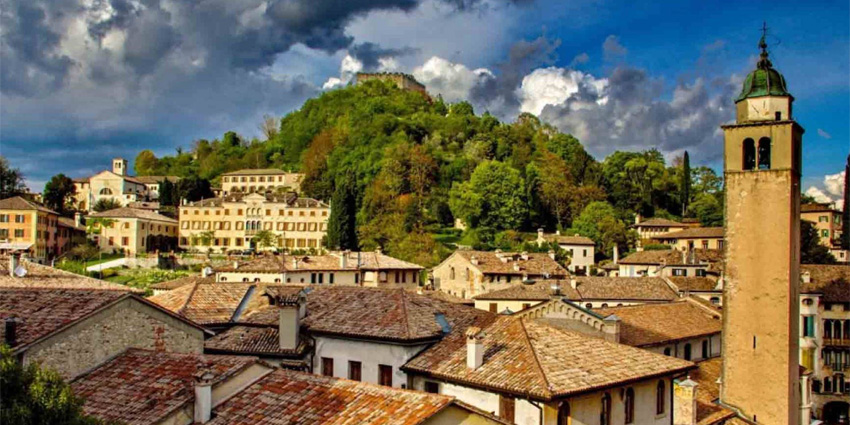
Asolo: The Town of a Hundred Horizons Among Hills, History, and Beauty
There are places that seem suspended in time, where ancient stories are told through stone walls,
quiet alleys, and breathtaking views. Asolo, nestled among the gentle hills of the Treviso province in northern Italy, is one of those places. Known as “the town of a hundred horizons,” Asolo captivates with the variety of vistas that open up from every corner of the village—terraces, viewpoints, and winding paths leading up the hill.
A Noble and Welcoming Village
Asolo’s history is closely tied to a fascinating Renaissance figure: Caterina Cornaro, Queen of Cyprus, who found refuge in this corner of Veneto after abdicating her throne. Her arrival marked the beginning of a vibrant cultural era, turning the village into a hub for intellectual and artistic life.
Today, walking through Asolo’s cobbled streets and under its quiet arcades, one can still sense a discreet elegance. The Castle of Queen Cornaro, overlooking the surrounding landscape, retains the solemn charm of history, while life in the village flows gently around Piazza Maggiore, home to the fountain with the winged Lion of Saint Mark, the Cathedral, and scenes that seem painted from another time.
Walking Along the “Foresti”
Locals call the steep streets that climb toward the hill “foresti.” Walking along them is an immersion into greenery—lined with cypress trees, olive groves, ancient stone walls, and the scent of nature. As you ascend, the landscape gradually opens up, offering breathtaking views stretching from the foothills of the Alps to the wide Venetian plain.
Every bend, every elevation reveals a new perspective: natural terraces overlook vineyards, terracotta rooftops, and the soft lines of cultivated hills. From this richness of views comes Asolo’s poetic nickname—“the town of a hundred horizons.”
The Theater, Eleonora Duse, and the Culture of Silence
For centuries, Asolo has attracted artists, writers, and free spirits seeking inspiration and tranquility. Among them was Eleonora Duse, one of Italy’s greatest actresses, who chose Asolo as her final home. The Teatro Duse, housed in the castle, bears her name and retains an intimate, peaceful atmosphere that harmonizes perfectly with the spirit of the town.
Culture here is never loud—it is found in the details, in quiet libraries, temporary exhibitions, hidden gardens, and the spontaneous conversations between travelers and locals.




